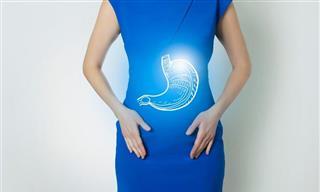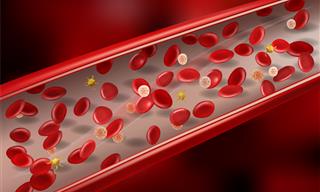1. You were sick around last February
According to infectious disease experts, if you were sick before January, it probably wasn’t Covid-19. The first confirmed case of coronavirus in the US was reported on January 20, 2020, and the first documented community spread happened in late February. Community spread refers to a Covid-19 diagnosis in someone who did not travel to countries with the virus or come into contact with a known sick person, according to the CDC.
If you were sick from mid-January to mid-February, it’s possible you had Covid-19. Widespread testing wasn’t readily available at that time, not to mention the outbreak took place during peak cold and flu season, so it’s quite possible you were battling coronavirus and didn’t know it.
Related: Covid-19 and Flu Co-Infection: What Does It Mean?
2. You lost your sense of smell and taste at some point
This seems like the hallmark of Covid-19, but experts stress it’s by no means a surefire sign. As many as 64.4 percent of people with Covid-19 report a loss of smell or taste, according to a study published in April 2020 in the Journal of the American Medical Association (JAMA). 27 percent of the patient who lost their sense of smell had “some improvement” within 7 days, while most were better within 10 days. In some cases, unfortunately, the symptom can linger for months after a patient recovers from Covid-19.
While this symptom is strongly associated with Covid-19, the loss of smell and taste can also appear with other respiratory viruses, like the cold and the flu, or even seasonal allergies.
3. You had strange wounds on your toes
“Covid toes” became a well-known symptom relatively recently. They are marked by a purple or red itchy wound. “Skin manifestations, particularly of the toes, could be something that makes people who weren’t tested look back and say ‘was that a manifestation of Covid-19?'” said Benjamin Singer, MD, an assistant professor in pulmonary and critical care at Northwestern University Feinberg School of Medicine in Chicago, to The Healthy. To learn more about this symptom, take a look at our previous article “COVID Toes”: What You Need to Know.
4. You noticed your child developed a strange rash
There have been concerning symptoms of rashes and multisystem inflammatory syndrome (MIS-C) in children who had Covid-19, the CDC states. Most children who become infected with the coronavirus have only a mild illness. But in children who go on to develop MIS-C, some organs and tissues — such as the heart, lungs, blood vessels, kidneys, digestive system, brain, skin, or eyes — become severely inflamed.
Other signs of MIS-C include fever, abdominal pain, vomiting, diarrhea, neck pain, and fatigue. If you notice any of these signs in your child, call your doctor.
5. Your stomach was acting up
Covid-19 is a respiratory illness, but as we came to know, not everybody experiences coughing or shortness of breath. For some, diarrhea may be the first and only sign of Covid-19, according to a March 2020 study in The American Journal of Gastroenterology. Researchers suggest that people with new-onset digestive symptoms should raise suspicion. It could suggest you have been infected, so try and look back to remember if you’ve been in contact with any confirmed individuals.
6. You had a sudden stroke
A link has been found between Covid-19 and increased stroke risk - even among younger patients. Inflammatory diseases seem to increase the risk of stroke, as the inflammation tends to trigger blood clotting and activates plaques in the blood vessels and arteries, making them stickier and more unstable. According to Jeremy Payne, MD, director of the Stroke Center at the University Medicine Neurosciences Clinic in Phoenix, stroke rates go up during flu season as well for similar reasons, and a similar mechanism is likely happening among Covid-19 patients.
Our intention, of course, is not to cause a scare, so it’s important to note that the stroke risk from the virus seems very small. Moreover, here are the warning signs you may be developing a blood clot.
7. You woke up with pink eye
Pink eye infection, or conjunctivitis, may be a sign of coronavirus, but this is very rare, according to the American Academy of Ophthalmology. To give you an idea, research done in April 2020 examined a total of 1,167 people with either mild or severe COVID-19. They found that only 1% of people with mild symptoms developed pink eye, while it occurred in 3% of people with severe symptoms.
So if you had pinkeye in the past year it is not necessarily a telltale sign you had Covid-19, and if you happen to contract it in the near future, there is no reason to panic. Just call your healthcare provider and follow their instructions.
What to do if you think you had Covid-19
If you’re in doubt but have a strong feeling you did have Covid-19, seek antibody testing, experts agree. “If you are even asking the question, ‘did I have Covid-19,’ order the test. The more we know about how many people have had exposure, the better,” says Matthew G. Heinz, MD, a hospitalist and internist at Tucson Medical Center in Tucson. You don't need to have had symptoms since many people don’t experience any symptoms at all.
Related: This Is What’s Currently Known About COVID-19 Immunity

Antibodies are produced when the body mounts its immune response to an infection, and this is the only way to know whether your body has contracted the coronavirus. Antibody tests can also tell whether someone has been infected with Covid-19 in the past as opposed to having an active infection. One thing to remember is timing the test right. Don’t get tested too soon after symptoms occur as that could lead to a false-negative result.
The bottom line is - if a high percentage of people in a community are immune to a disease, its chances of spreading from person to person decrease. For some people, that knowledge could understandably save a lot of stress and worry.
Share this important information with friends and family
 Go to BabaMail
Go to BabaMail
































